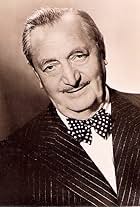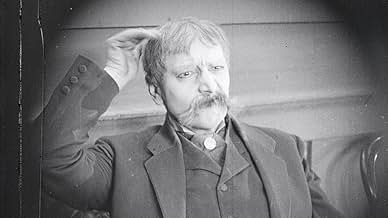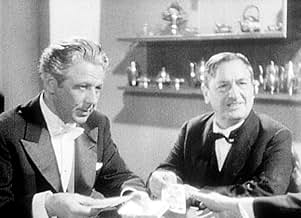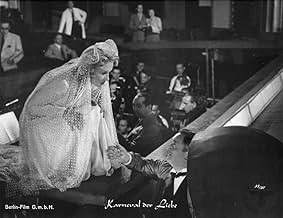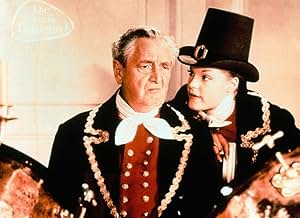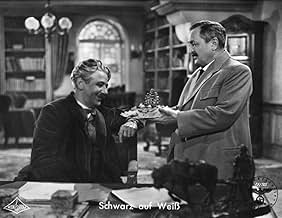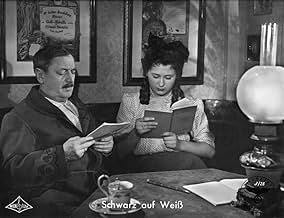Hans Moser(1880-1964)
- Actor
- Writer
- Soundtrack
Hans Moser, whose real name is Jean Juliet, was trained in theater by the court actor Josef Moser. He later took his last name and combined it with the German translation of his first name. In 1897 he had his first engagement in Bohemia. He later took part in a traveling theater that took him through the country. He settled in Josefstadt in 1903 and was hired at the local theater. Four years later he was back on tour with the theater through Austro-Hungarian territory. Moser appeared in revues, cabarets and theaters in Vienna in 1910. He took part in the First World War. Afterwards he worked again as a member of a cabaret. Moser began his film work in 1922.
Three years later he returned to Josefstadt. There he played theater under Max Reinhardt. He favored roles in literary works by Johann Nepomuk, Odön von Horvath and Arthur Schnitzler. He later made a career in television. He particularly shone in comic roles as a small, often odd, studious man with his mumbles and erratic movements, which made him known to a larger audience. His popularity in these comic roles made him famous even after death. In expert circles, Hans Moser is considered one of the most important film comedians. In his roles he often portrayed lower-class men, such as in the melodrama "Masquerade" from 1934, in which he played a gardener. In the Schubert film "Leise beg my songs" from 1934, Moser played a pawnbroker. He could be seen as a waiter, a servant or a maid for everything as well as in many other roles.
With his often quirky, strange manner and mumbling, he became one of the most popular German-speaking film actors of the 1950s. His film partners included Heinz Rühmann and Theo Lingen. In the Erich Neuberg production of "The Stories from the Vienna Woods" from 1964, he was seen in one of his most successful adult roles. This also included the play "The Farmer as a Millionaire" by Ferdinand Reimund, which was staged by Rudolf Steinböck for the Salzburg Festival. He previously appeared alongside Romy Schneider as her grandfather in the film "The Beautiful Liar" by Axel von Ambesser. His other films include "The City without Jews" (1924), "Burgtheater" (1936), "The Thirteen Chairs" (1938), "The Disgust" (1939), "Vienna Stories" (1940) , "Schrammeln" (1943), "Der Hofrat Geiger" (1947), "Der Herr Chancellor" (1948), "Hello Serviceman" (1951) or "Die Fledermaus" (1962).
Hans Moser died on June 19, 1964 in Vienna.
Three years later he returned to Josefstadt. There he played theater under Max Reinhardt. He favored roles in literary works by Johann Nepomuk, Odön von Horvath and Arthur Schnitzler. He later made a career in television. He particularly shone in comic roles as a small, often odd, studious man with his mumbles and erratic movements, which made him known to a larger audience. His popularity in these comic roles made him famous even after death. In expert circles, Hans Moser is considered one of the most important film comedians. In his roles he often portrayed lower-class men, such as in the melodrama "Masquerade" from 1934, in which he played a gardener. In the Schubert film "Leise beg my songs" from 1934, Moser played a pawnbroker. He could be seen as a waiter, a servant or a maid for everything as well as in many other roles.
With his often quirky, strange manner and mumbling, he became one of the most popular German-speaking film actors of the 1950s. His film partners included Heinz Rühmann and Theo Lingen. In the Erich Neuberg production of "The Stories from the Vienna Woods" from 1964, he was seen in one of his most successful adult roles. This also included the play "The Farmer as a Millionaire" by Ferdinand Reimund, which was staged by Rudolf Steinböck for the Salzburg Festival. He previously appeared alongside Romy Schneider as her grandfather in the film "The Beautiful Liar" by Axel von Ambesser. His other films include "The City without Jews" (1924), "Burgtheater" (1936), "The Thirteen Chairs" (1938), "The Disgust" (1939), "Vienna Stories" (1940) , "Schrammeln" (1943), "Der Hofrat Geiger" (1947), "Der Herr Chancellor" (1948), "Hello Serviceman" (1951) or "Die Fledermaus" (1962).
Hans Moser died on June 19, 1964 in Vienna.
